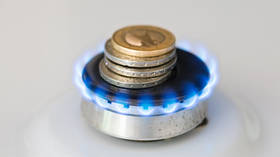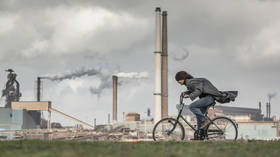EU agrees to gas price cap – Czech Republic

After weeks of negotiations, European Union energy ministers on Monday agreed to set the price cap on wholesale gas at €180 per megawatt-hour (MWh), according to Reuters, citing representatives of the Czech Republic.
The report says the cap will come into force on February 15. It will trigger if the Dutch TTF natural gas futures exceed the limit set for three days.
A document cited by Reuters showed that the cap will initially not apply to over-the-counter trades.
Three unnamed EU officials told the media outlet that Germany, which had been skeptical, voted on Monday to support the scheme, despite having raised concerns about its impact on the bloc's ability to attract gas supplies in price-competitive global markets.
Germany and some other EU members reportedly had sought more safeguards to ensure that the gas price cap mechanism would be suspended if the policy has negative consequences.
Under the original proposal put forward by the European Commission, the gas price cap would have been triggered when prices on the TTF exchange reached €275 ($292) per megawatt hour and were €58 higher than the LNG reference price for two weeks.
However, the Czech government, which currently holds the bloc’s rotating presidency, proposed lowering the ceiling to €188 per megawatt-hour.
EU member states had been trying to find common ground on the proposed price cap for weeks. The so-called “market correction mechanism” was put forward by Brussels in November as an attempt to protect EU businesses and households from “excessively high gas prices.”
Some countries had expressed concern that implementing such a measure would only exacerbate market volatility, while others argued that the floated price level was too high to be effective.
Russia has repeatedly warned that it will simply stop supplying gas to the EU if the price ceiling is introduced, redirecting deliveries to Asian customers instead.
For more stories on economy & finance visit RT's business section













